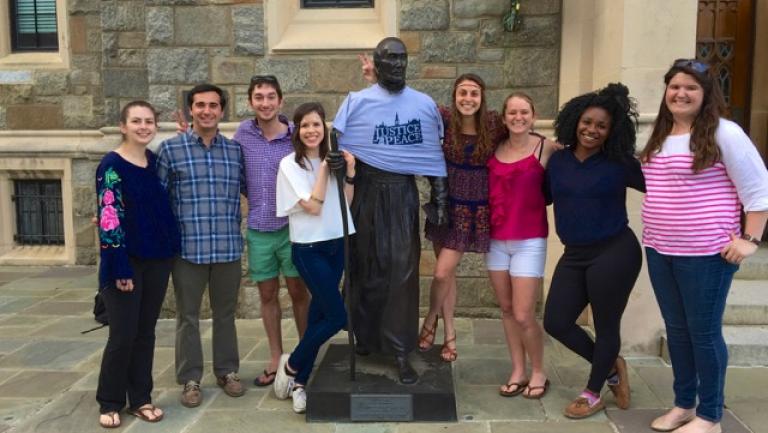Our History
Although most of the university programs to which the Program on Justice and Peace compares itself are referred to as “peace studies” or “peace and conflict resolution,” early on it was thought important to emphasize the relation between justice and peace in our Program. There are a number of reasons for this emphasis. From an empirical point of view, we feel that one cannot study either of these phenomena in isolation. Structures of social oppression, actual or perceived, are argued by many to be among the causes of war and other violent conflict. Such conflict also has obvious effects on social structure and on the possibility of attaining justice.
Conversely, one cannot attempt to evaluate the ethical implications of violence, whether it be war, revolution, or individual conflict, without considering the consequences it has for social and political structure. Any adequate understanding of the virtues of justice must at least outline the conditions under which people ought to be free from violence and war.

Within the Christian tradition we find these two issues deeply entwined. From the Catholic Just War debate to the Quaker peace communities, issues of justice and peace are integral to the Christian worldview. Our Program is especially well suited for research and teaching about the many ways in which different social and religious arrangements conceptualize and practice peace. We take inspiration from the teachings of Gandhi and Ambedkar, Martin Luther King and Frantz Fanon, Rigoberta Menchu and Emma Goldman. In its teaching, research and service at Georgetown, the Program is dedicated to providing ecumenical, international perspectives on peace, and to developing practical solutions to problems of social inequality and injustice at all levels of society. The attainment of justice and peace forms a conceptual, moral, and practical unity that must be pursued across the diversity of human experience.
The guiding orientation of teaching and research in JUPS is normative. Our fundamental concern is to study and teach about how one ought to behave–politically, professionally, personally–so as to bring about a more just and peaceful world. These questions of practical morality and politics draw on many disciplinary sources in the academy–humanistic, social scientific, and theological–and raise issues at several levels of social organization.